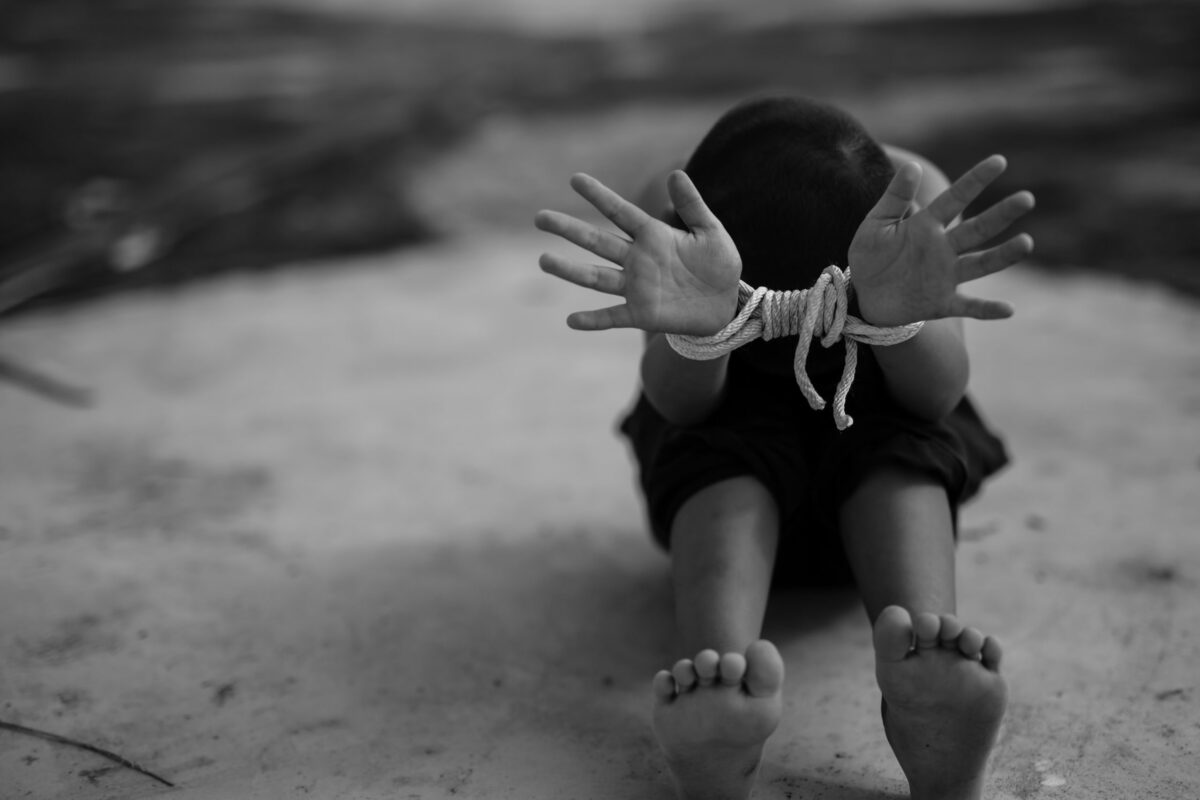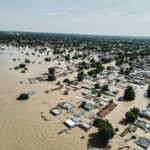On 30 July 2021, we commemorate World Day Against Trafficking in Persons. The plight of millions of children, women, men suffering coercion, exploitation and humiliation is real. Driven by the demand for cheap labour and commercial sex, trafficking rings across borders and within countries take advantage of economic, social and political vulnerabilities to exploit their victims.
The number of persons who have been trafficked is on the rise everywhere, and Nigeria is not an exception. As a country of origin, transit and destination for victims of human trafficking, the giant of Africa records the highest number of human trafficking victims.
In 2018, the Walk Free Foundation estimated that almost 1.4 million individuals were living in modern slavery in Nigeria. Research also shows that two-thirds of Nigerian victims of trafficking are victims of domestic human trafficking. Criminals of such a highly profitable business model have devised ways to hide their traces and increase gains.
This year’s World Day against Trafficking in Persons theme “Victims’ Voices Lead the Way” highlights the importance of listening to and learning from survivors of human trafficking.
Sadly, often unheard, victims and survivors’ voices are key to developing and implementing strategies, policies, and measures to prosecute perpetrators.
In worst cases, they face re-victimisation and punishment for seeking help for the crimes they were forced to commit by their traffickers.
We call upon our partners to put victims and survivors at the centre of our collective responses, learning from their stories and gaining inspiration from their courage and resilience.
The ongoing pandemic has exacerbated the vulnerabilities of potential victims of trafficking, made them more susceptible to exploitation, and brought to the surface existing societal inequalities. With the attention of governments focused on how to strengthen the health systems and cope with the soaring loss of jobs, the victims are often left with no chance to be heard.
Provision for essential services and support mechanisms has been extremely limited as countries struggle to respond to all challenges posed by COVID-19.
At the International Organization for Migration (IOM), we are concerned about the severity and dimensions of this issue. This is why our counter-trafficking work strongly focuses on providing assistance and protection to victims of human trafficking including other vulnerable migrants and conducting awareness-raising activities.
IOM works closely with the National Agency for Prohibition of Trafficking in Persons (NAPTIP) to build and strengthen the capacity of state and non-state actors across the board to provide protection support using a victim-centred approach.
Nigeria has made laudable efforts through the work of NAPTIP to counter trafficking in persons with the implementation of new policies and interventions like the creation of a new National Action Plan against Human Trafficking, operationalization of the national referral mechanism through the development of identification and reporting tools aimed at ensuring that there is a standardized approach to victim identification, referral and reporting.
In addition, the creation of multiple state task forces on human trafficking and “legal hubs” for trafficked persons has enabled access to justice and strengthened cross border coordination.
We recall the commitments made by the Federal Government of Nigeria in the Global Compact for Safe, Orderly and Regular Migration to facilitate the access of trafficked persons to justice, to allow them to safely report experiences without fear of detention, deportation or penalty, and to provide migrants who have become trafficking victims with protection, assistance and redress.
We call on government partners, civil society organisations and the UN community in Nigeria to:
• Give a voice to trafficking victims and survivors – make them powerful agents of change in our societies. Let us benefit from their experience and knowledge to create human rights-based and victim-centred anti-trafficking interventions.
• Enhance international, regional and local cooperation – to monitor migration routes to prevent trafficking, collaborate in cross-border investigation and prosecution of perpetrators, and provide protection and assistance to those in need at any stage of their migration journey.
• Identify, refer, and assist victims of trafficking promptly – to protect their rights and dignity and foster their psychosocial recovery and reintegration into society.
• Implement a whole-of-society approach to address trafficking in persons –reaffirming the key role of frontline actors, including victims and survivors-led initiatives, to inform effective responses to the needs of trafficking victims.
Human trafficking is a crime and a violation of human rights. It has no place in our world. Victims and survivors must be heard.
By Franz Celestin, IOM Chief of Mission

 Join Daily Trust WhatsApp Community For Quick Access To News and Happenings Around You.
Join Daily Trust WhatsApp Community For Quick Access To News and Happenings Around You.

